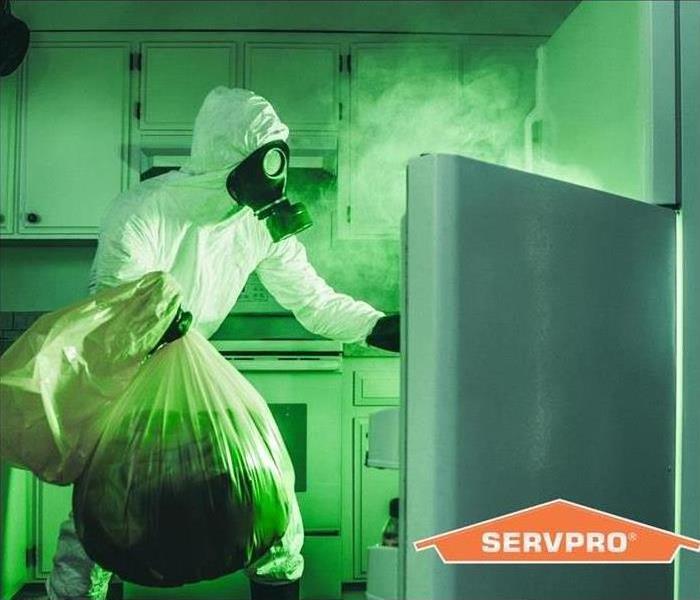Understanding Bio Hazard Dangers
4/25/2019 (Permalink)
Not everyone understands what situations are classified as Bio Hazard. Many bio hazard situations pose grave health risks to customers as well as the cleanup companies because of the potential exposure to blood borne pathogens. One out of every 24 people has Hepatitis B, Hepatitis C or HIV and these pathogens can survive in a deceased person for a considerable amount of time – up to 16 days after death, depending on the temperature and surrounding environment. Exposure to blood borne viruses can occur due to direct contact with non-intact skin, accidental injury from biological fragments, inhalation and exposure from splashes of blood or bio fluid to the eyes, nose, or mouth. Considering the health risks, bio remediation specialists must follow stringent employee safety regulations and meticulous decontamination procedures that most cleanup crews are not accustomed to.
Separately, bio hazard situations can lead to hidden dangers that an average property restoration technician might not even consider. For example, in a water damage emergency, floor boards and drywall might be removed because they are visibly warped and unsalvageable. Then the rest of the structure can be dried out. In contrast, blood can seep through grout and in-between floorboards, even through sub flooring. There is no other way to clean the damage but to remove all affected materials – if new wood floors are installed over the blood spill or if tiles are simply wiped down, the remaining bio matter can spread disease, release odors and further damage the property.





 24/7 Emergency Service
24/7 Emergency Service
